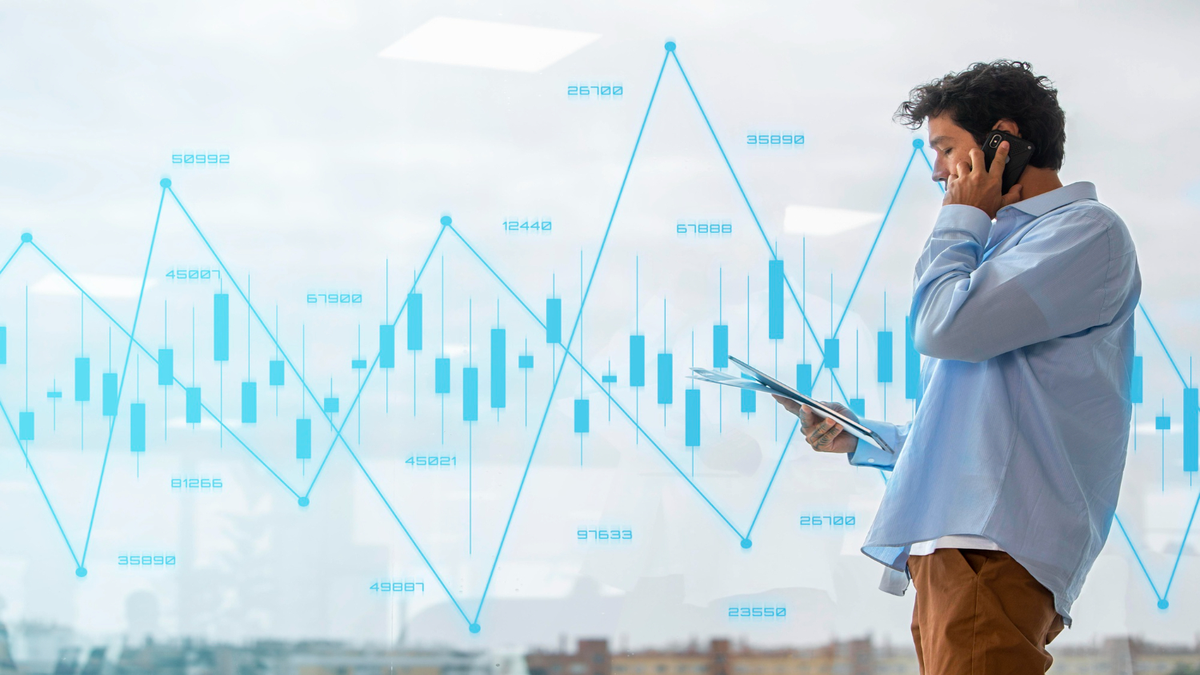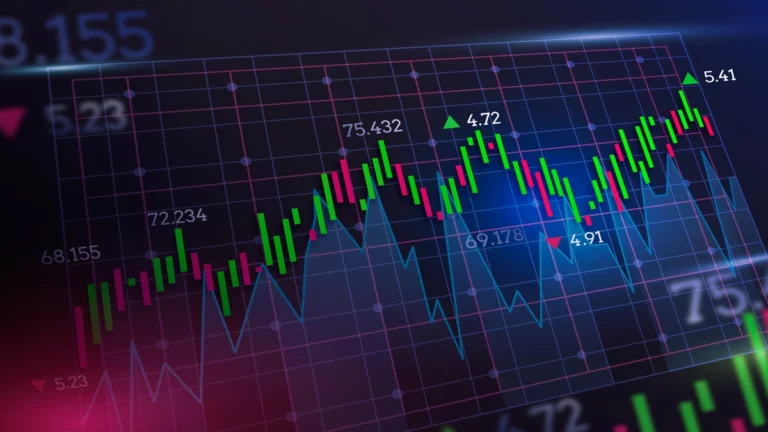In 2025, AI is no longer just a buzzword in stock market trading; it is a game-changer. As AI algorithms become more sophisticated, they’re revolutionizing the way traders analyze markets, make decisions, and execute trades.
Moreover, from uncovering hidden patterns to predicting market moves, AI is helping traders gain a competitive edge like never before.
Additionally, stock prediction is becoming easier, faster, and more accurate with the use of Artificial Intelligence as a tool.
Explore the detailed breakdown of “The Secret to Stock Prediction? DIY AI in Action!” in this full video.
Moreover, whether you’re a seasoned trader or just starting out, understanding how AI is reshaping the stock market landscape is essential for success in the field and beyond. Let’s dive in as we discuss the implications of AI in the stock market landscape.
An overview of stock prediction

Stock price prediction is the process of forecasting the future price movement of a stock or other financial instrument traded on an exchange. Moreover, it involves analyzing historical data, market trends, and various other factors to estimate the future value of a stock. Furthermore, this helps investors make informed decisions about buying, selling, or holding stocks. Here’s a more detailed breakdown of the various processes involved –
- Analyzing historical data: This step involves examining past stock prices, trading volumes, and other relevant data to identify patterns and trends.
- Utilizing technical and fundamental analysis: Additionally, the next process is employing various methods to assess a stock’s value, including technical indicators (e.g., moving averages, RSI) and fundamental factors (e.g., company financials, industry trends).
- Employing statistical models and machine learning algorithms: Furthermore, mathematical models and algorithms are used to identify relationships within the data and make predictions.
- Considering market sentiment and external factors: Moreover, taking into account investor psychology, economic conditions, and other external events that can influence stock prices.
What is DIY AI?

DIY AI refers to the growing trend of individuals creating and using their own artificial intelligence solutions, rather than relying solely on large corporations or established institutions. Additionally, this democratization of AI empowers individuals to leverage AI for their specific needs, fostering innovation and problem-solving across various fields. Here is a breakdown of DIY AI and its empowering potential:
- Democratization of AI: DIY AI allows individuals with varying levels of technical expertise to build and utilize AI tools. Additionally, moving away from a model where AI development is concentrated in the hands of large tech companies.
- Focus on Specific Needs: Furthermore, individuals can tailor AI solutions to address their unique challenges, whether it’s automating tasks, analyzing data, or generating creative content.
- Learning and Experimentation: Additionally, DIY AI encourages experimentation and learning about AI concepts, fostering a deeper understanding of the technology and its capabilities.
Also read:
- India’s Vision: The future of robotics by 2050 and Beyond
- Meet nothing phone 3a pro – Style Meets Power
- Why the samsung galaxy s25 ultra Redefines Premium Phones?
- DALL·E Mini to dall-e 3: Free AI Thumbnail Maker
- Samsung’s latest update: one ui 7
The Machine Learning Stock Prediction Correlation

Machine learning for stock market prediction involves the use of advanced algorithms to forecast the future value of stocks or other financial instruments. Additionally, it helps to provide insights into trading and investment opportunities. Let us discuss some of the remarkable advancements in AI for stock market prediction.
1. Natural Language Processing (NLP)
- Natural Language Processing has become increasingly important in predicting stock prices.
- Moreover, NLP algorithms can extract actionable insights from voluminous data, empowering investors and financial institutions to filter out the noise.
- Additionally, they help to focus on critical data points for accurately predicting market movements.
2. Sentiment Analysis
- AI-powered systems can analyze news articles, companies’ financial reports, and social media conversations in real-time.
- Furthermore, this sentiment analysis helps investors and financial institutions to gauge market sentiment and make accurate predictions based on this sentiment analysis.
3. High-Frequency Trading
- AI-based high-frequency trading (HFT) emerges as the undisputed champion for accurately predicting stock prices.
- Moreover, the AI algorithms execute trades within milliseconds, allowing investors and financial institutions to capitalize on minuscule price discrepancies.
- Thus, the use of AI in stock market trading tools improves their ability to analyze market data and execute trades at lightning-fast speed with better accuracy.
4. Big Data Analytics
- The explosion of big data has been instrumental in the evolution of AI in stock trading.
- Furthermore, AI systems sift through enormous volumes of structured and unstructured data to uncover hidden patterns and correlations that traditional analysis might miss.
- Additionally, AI systems in stock market analysis move beyond conventional metrics to provide a more nuanced, multidimensional view of market behavior.
5. Deep Learning Methods
- Recent advancements emphasize deep learning methods applied to stock market prediction.
- Moreover, AI systems now use deep neural networks and reinforcement learning to continuously improve their performance.
6. Machine Learning Algorithms
- ML algorithms can analyze historical data to find patterns in price changes, offering statistical insights on investment decisions, like the probability of success and risk.
- Additionally, ML programs revolutionize algorithmic trading through historical data analysis.
- Furthermore, ML can also automate investment decisions and even create a completely AI-governed stock portfolio.
Algorithmic Trading in stock prediction

Algorithmic trading, also known as algo-trading, is a method of executing trades using pre-programmed instructions (algorithms) in a computer program.
Furthermore, these algorithms analyze market data and automatically generate buy or sell orders based on predefined rules and conditions, rather than relying on human traders to manually place orders.
Additionally, this process can significantly speed up trade execution and remove emotional biases that might affect human decision-making. Here’s a more detailed explanation of how it works:
- Predefined rules: Traders develop algorithms that specify the conditions under which trades should be executed. Moreover, these rules can be based on various factors like price levels, time, volume, or other mathematical models.
- Automated execution: Moreover, once the algorithm identifies a trading opportunity that meets the predefined criteria, it automatically places the order without human intervention.
- Real-time data: Furthermore, algorithmic trading relies on real-time market data to analyze trends, identify patterns, and trigger trades based on the defined logic.
Some benefits of Algo-trading
- Traders are given the best possible prices.
- Moreover, instant and accurate placement of trade orders.
- Additionally, to avoid significant price changes, trades are timed correctly and instantly.
- Also, there is a reduced chance of errors based on emotional and psychological factors by human traders.
Conclusion
In today’s fast-paced financial world, stock forecasting is no longer limited to Wall Street’s elite. Moreover, with the rise of new AI tools, anyone with access to data and an interest in machine learning may create their own stock forecasting systems.
Furthermore, from natural language processing and sentiment analysis to algorithmic techniques and big data analytics, AI enables people to make better, faster, and more informed financial decisions.
Moreover, as machine learning advances, so will its role in improving stock predictions and altering the trading scene. Additionally, while artificial intelligence cannot promise 100% certainty in a volatile market, it does provide previously inconceivable insights.
Additionally, whether you’re a novice or an expert, embracing AI in trading isn’t just a trend; it is the future. So why wait?
Dive into the world of ML stock prediction and harness the power of AI to make your next investment move a smart one.
To Get More Updates, Click Here

















